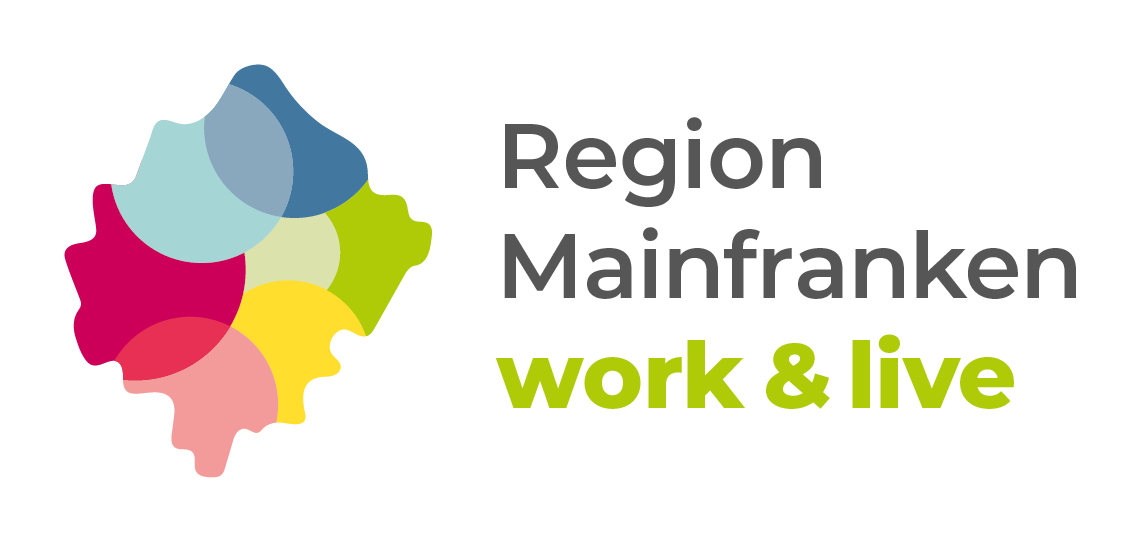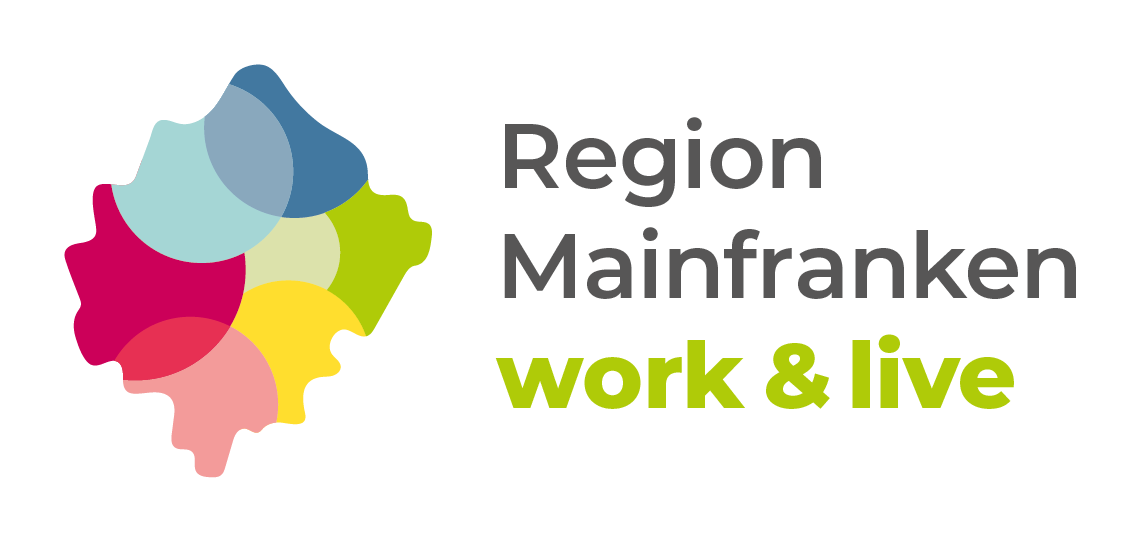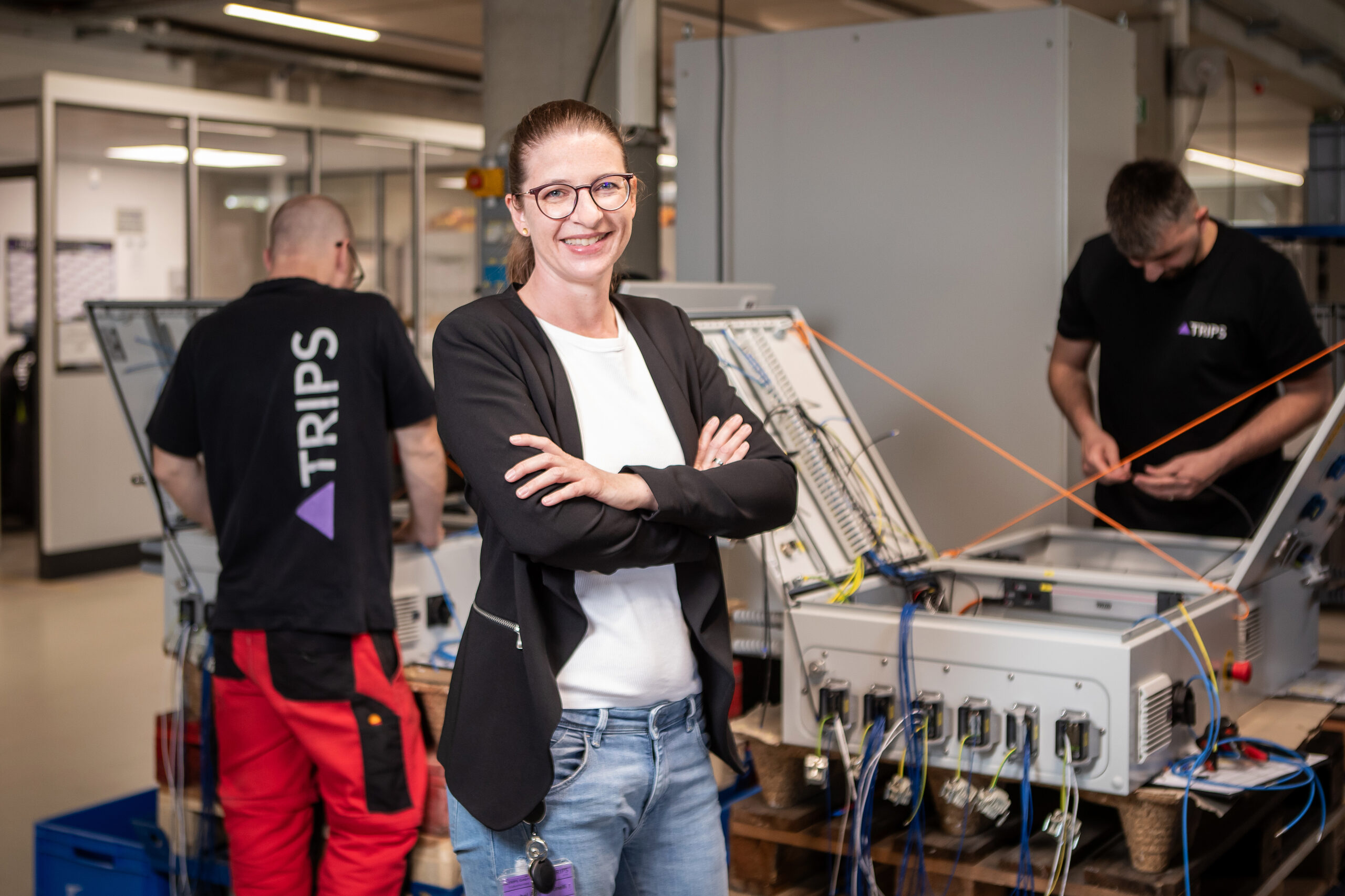
Best Practice –
TRIPS GmbH
New Ways in Securing Skilled Workers – a Family Business Shows How It’s Done.
Openness to new approaches characterizes this medium-sized family business. As one of the first providers of dual study programs in the region, the company adopted forward-thinking concepts early on. Whether through career changes, international professionals, or targeted support – securing skilled workers is approached from various angles here. Behind every decision are courage, passion, and a firm will to shape the future. Experience for yourself what’s possible when you leave the familiar behind.
To the recruited professional: Mr. Junnedi
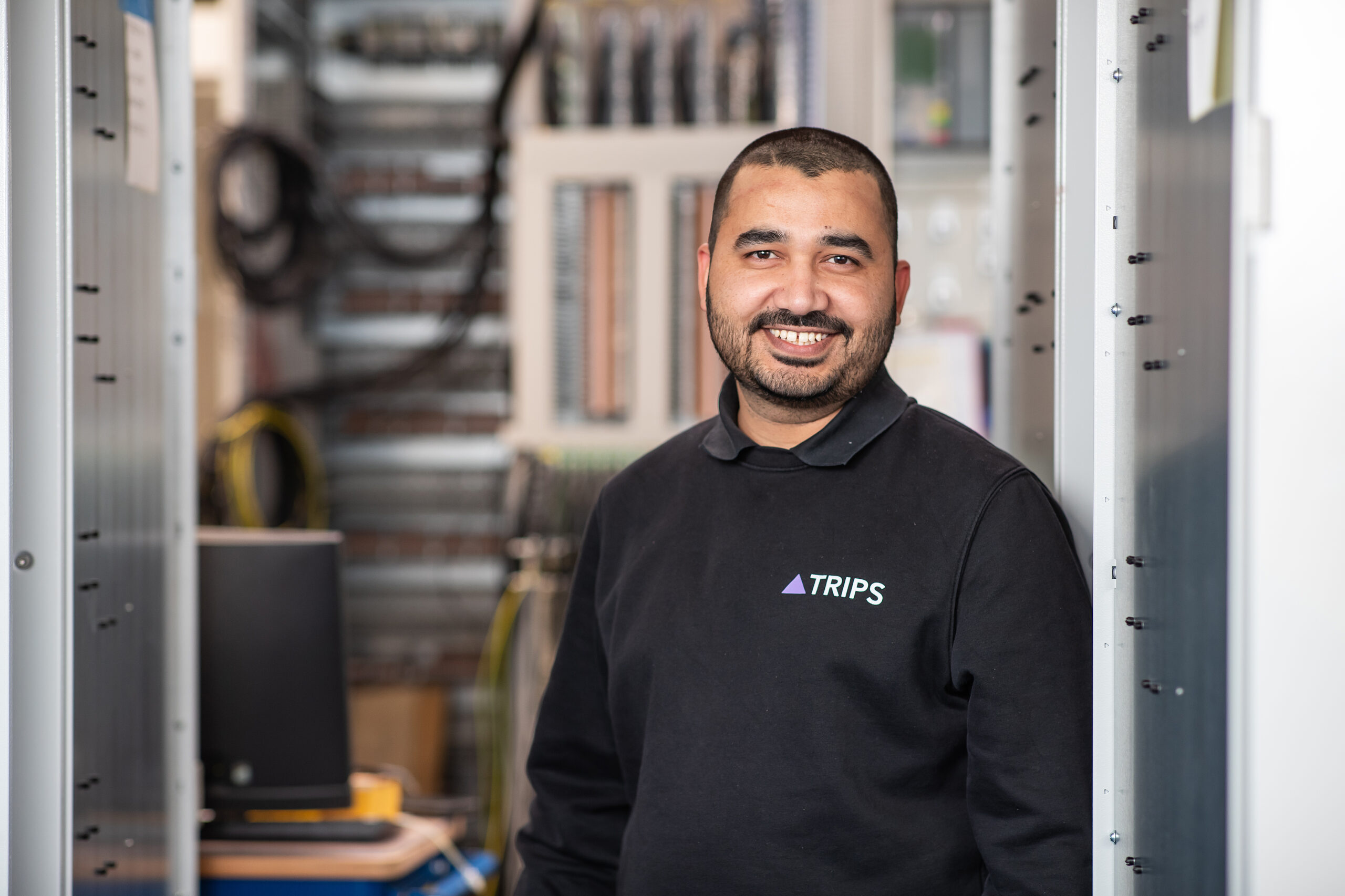
It was in 2017, eight years ago, when I applied. I’m from India and was working abroad on a construction site in Bangladesh at the time. I sent my application via email to TRIPS – to Rachel Ann Martinelli. That was my very first contact with the company.
I was all the more surprised when a response came just a few days later: “We have received your CV.” Shortly after, a Skype interview was arranged. After just four weeks, the entire application process was completed – it went incredibly fast. For me, that was decisive: the quick and uncomplicated process, even though I wasn’t even in Europe at the time. I had already worked in many countries around the world, especially in Asia – but Europe was new to me.
Personal support was also important to me. For example, with finding accommodation: The company provided an apartment for me for the first few weeks – that’s not a given. I also received support with visits to government offices and translating documents, which I found very positive.
The opportunity to further develop in this specific area of automation was decisive for me. I really wanted to work in this field – that was my goal. I’m still very grateful to the colleague who recommended TRIPS to me eight years ago.
The company’s HR department was also always there for me – not just during working hours, but beyond that as well. Even with topics related to leisure activities, I could count on support. For example, there’s a WhatsApp group for employees where tips are regularly shared – whether for relaxing at the city beach in Schweinfurt, for weekend activities, or simply for networking. This was very helpful for me because it’s not easy when you arrive here all alone – without family and without knowing anyone.
The helpfulness and solidarity in many situations are what I appreciate the most. Many people have helped me – as mentioned earlier, with finding an apartment, but also with many other organizational issues. For example, with the broadcasting fees: I didn’t even know what that was – I don’t use radio or television. My colleagues explained to me that these fees are mandatory for everyone in Germany, and how it all works – including the necessary forms. I also received support in filling out such forms.
Dealing with authorities here is often complicated and time-consuming. At that time, I couldn’t speak German yet, so the HR department communicated directly with the authorities on my behalf – for example, regarding my visa.
The helpfulness and solidarity in many situations are what I appreciate the most. Many people have helped me – as mentioned earlier, with finding an apartment, but also with many other organizational issues. For example, with the broadcasting fees: I didn’t even know what that was – I don’t use radio or television. My colleagues explained to me that these fees are mandatory for everyone in Germany, and how it all works – including the necessary forms. I also received support in filling out such forms.
Dealing with authorities here is often complicated and time-consuming. At that time, I couldn’t speak German yet, so the HR department communicated directly with the authorities on my behalf – for example, regarding my visa.
I would recommend to other companies: Be open – like TRIPS. The first contact is always crucial. Transparency is also important – openly presenting what the company offers and what employees can specifically expect.
What I particularly appreciate is the personal and uncomplicated manner of interaction – for example, the direct contact with the boss. I had never experienced anything like that before. I remember it clearly: I had just landed at the airport when I received a message from her – “You’ve landed, welcome to Germany!” So personal and warm – I was really surprised.
You are currently viewing a placeholder content from YouTube. To access the actual content, click the button below. Please note that doing so will share data with third-party providers.
More InformationTo the HR professional/employer: Rachel Ann Martinelli (team lead recruiting sourcing)
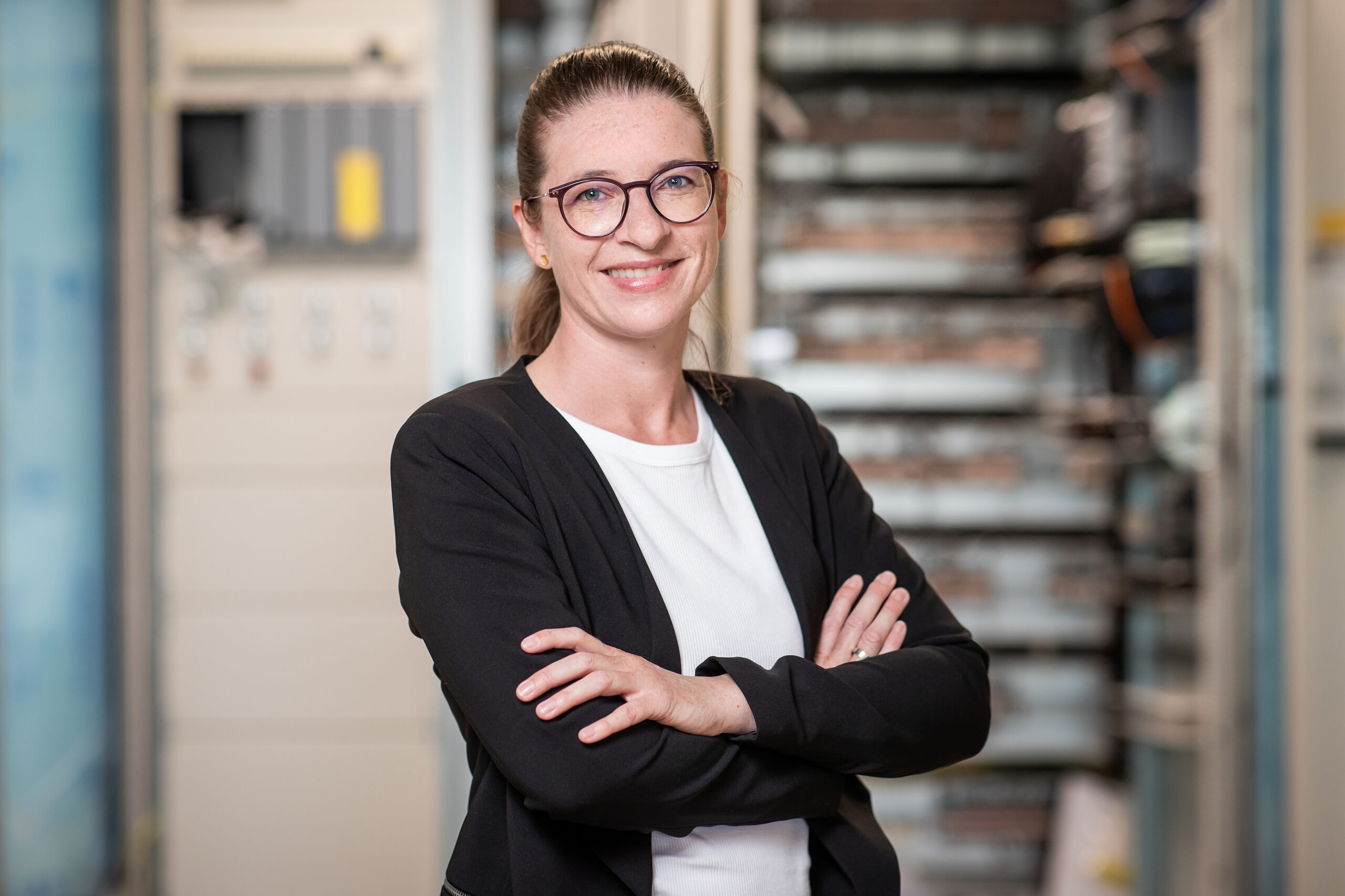
The shortage of skilled workers is still noticeable. In recent years, we have experienced a significant decline in applications – it’s recovering somewhat now, but the challenge remains. It’s noticeable that we now receive significantly more international applications. Digitalization has made access easier, applications from abroad are simpler than ever.
Our response to this is multifaceted: We are increasingly focusing on active sourcing, actively approaching potential skilled workers instead of just waiting for applications. At the same time, we are opening ourselves to new ways – for example, with apprentices from Spain, retrained workers from Syria, or career changers without traditional training.
Of course, international recruitment also brings challenges – especially linguistically and bureaucratically. That’s why we offer German and English courses in-house, support with administrative procedures, and help with issues such as school, kindergarten, or parent-teacher meetings. A dedicated contact person in the HR department accompanies the entire process. We are a family business – and what we call the TRIPS family, we also live in everyday life.
The trigger for us to deal more intensively with the topic of securing skilled workers was primarily due to the requirements of our project business. We have been working internationally for many years – with long-running projects and assignments in sometimes very unusual countries. As a result, we had early contact points with skilled workers from abroad. For our projects, we often need highly specialized knowledge that is often difficult or impossible to find on the German job market. The filling times were correspondingly long.
At the same time, we know that there are excellently trained engineers in other countries – with exactly the qualifications we need. The next logical step was therefore to specifically search for skilled workers abroad and actively recruit them for us.
Our skilled worker strategy benefits from many cooperations and networks in the region. The important partners are the Chamber of Industry and Commerce and the Mainfranken region. We regularly participate in action days and stay in exchange with the regional economy.
In the field of education, we are strongly networked regionally, especially with schools. There are numerous cooperations where apprentices and skilled workers show what is practically implemented – for example, through company tours for technology classes. We also work with further education providers.
Another important aspect is the dual study program – we have close connections with the university of applied sciences, which promotes knowledge transfer. We also attend many trade fairs and offer internships and retraining programs. This allows potential employees to get to know our company – many of them then stay with us for the long term.
In recent years, recruitment has changed significantly – especially due to digitalization. Everything has become much faster, and applications are now much easier to submit. Nowadays, we often only receive profiles from Xing or LinkedIn, while classic application documents are rarely seen anymore. This is not always easy for companies, as we often don’t have all the information at a glance as we used to.
Nevertheless, we have to adapt to this and make it as easy as possible for applicants to apply to us – regardless of their location. Communication has also changed: The way candidates contact us has become much more digital and faster. In addition, expectations have also shifted. In the past, the focus was mainly on the content of the work, the tasks themselves. Today, applicants are increasingly interested in peripheral topics such as work-life balance, the possibility of a 4-day week, or the added value of a company, especially in terms of corporate culture and the flexibility offered.
